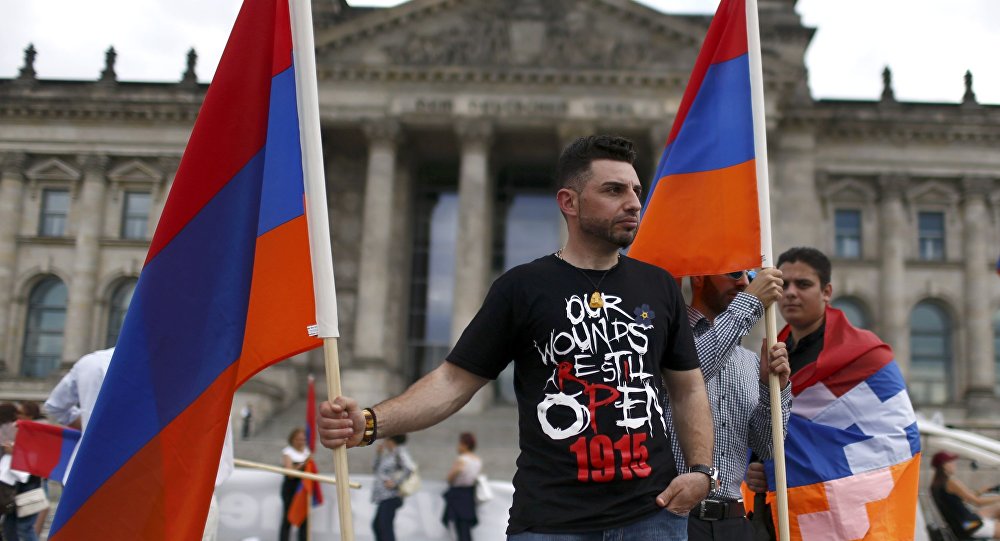On the occasion of the 40th anniversary of the end of World War II, on May 8th 1985, German President Richard von Weiszäcker addressed the country’s parliament with the following words: “All of us, whether guilty or not, whether young or old, must accept the past. We are all affected by the consequences and liable for it. We Germans must look truth straight in the eye – without embellishment and without distortion.”
Weiszäcker’s speech became a milestone in the distinctively German process known as Vergangenheitsbewältigung (a composite German word which can be best rendered in English as the struggle to overcome or confront the [criminal] past.) Acknowledging the Holocaust and other atrocities committed by Germany during WWII was not an easy process. Weizäcker’s speech challenged persisting idealized or self-victimized national narratives, and it undermined citizens’ identification with their history.
Will a Turkish statesman ever deliver a similarly courageous pronouncement about the country’s horrific past vis-à-vis the Armenian and other Christian minorities?
 The German Parliament’s recent declaration recognizing the genocide by its name might actually bring that moment a bit closer. This declaration was not fingerpointing nor blaming. It was, again, an example of self-reflection: it recognizes the German Reich’s complicity in the 1915-1918 events. “This is not a matter between Armenians and Turks,” said the President of the Bundestag in an interview after the historic declaration, “it concerns us in Germany as well.”
The German Parliament’s recent declaration recognizing the genocide by its name might actually bring that moment a bit closer. This declaration was not fingerpointing nor blaming. It was, again, an example of self-reflection: it recognizes the German Reich’s complicity in the 1915-1918 events. “This is not a matter between Armenians and Turks,” said the President of the Bundestag in an interview after the historic declaration, “it concerns us in Germany as well.”
It is also important to understand that Germany’s declaration is about more than acknowledging the crime itself. The passage of time (more than a century) removes the actual victims, perpetrators and bystanders. The question, now, is how their descendants will deal with this divided history. In too many instances, we see that victim identities are passed on to subsequent generations while others will be condemned with the perpetrator stigma. In this respect, the German example is valuable for all, as it distinguishes clearly between guilt and responsibility. In listening to the statements of the German members of Parliament, I was reminded of how political theorist Hannah Arendt elucidated that distinction: “We are always held responsible for the sins of our fathers as we reap the rewards of their merits, but we are not guilty of their misdeeds.”
Germany’s declaration this week in the spirit of Vergangenheitsbewältigung, provides guidance for a process through which societies can move from a divided past to a shared future. It also teaches that one can only step out of the dark shadow of the past by ceasing to deny the undeniable.
Alejandro Baer is the Stephen Feinstein Chair and Director of the Center for Holocaust and Genocide Studies. He joined the University of Minnesota in 2012 and is an Associate Professor of Sociology.

Comments 1
Genocide. The Weight of One Word - Center for Holocaust & Genocide Studies — May 4, 2021
[…] ago, the Center published two blog articles, Another Genocide Declaration: This One Matters, and Berlin’s Message to Ankara, detailing the importance of Germany’s recognition of the Armenian genocide. Then, Germany had […]